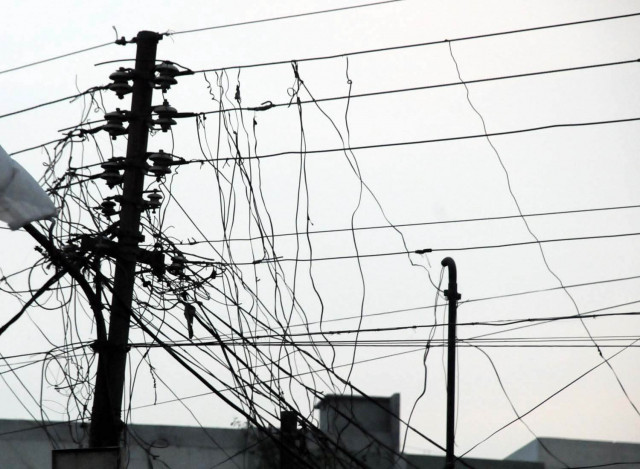Power tariff: Collection of four electricity surcharges declared illegal
Government’s request for suspension of judgement for two weeks dismissed.

PHOTO: EXPRESS
A Lahore High Court division bench on Friday declared unconstitutional and illegal several surcharges in the electricity bills.
These included equalisation, debt servicing, universal obligation fund and Neelam-Jhelum surcharges.
The bench comprising Justice Syed Mansoor Ali Shah and Justice Ayesha A Malik also struck down Section 31(5) of the Regulation, Transmission and Distribution of Electric Power Act of 1997 under which electricity supply companies added these surcharges to the monthly bills of electricity consumers.
It directed the government to refund the amount collected from consumers under the four surcharges. The National Electric Power Regulatory Authority was given three months to devise a repayment plan for the purpose.
The bench dismissed an application filed by the federal government requesting that implementation of the verdict be suspended for two weeks. On behalf of the government, Deputy Attorney General Naseer Ahmed Bhutta submitted that the judgement could affect negotiations underway between the government and the International Monetary Fund (IMF) and other financial institutions for the next fiscal year. The bench dismissed the application and told the government to approach the Supreme Court of Pakistan to seek the relief.
The bench was hearing 270 identical petitions challenging the imposition of the surcharges.
The petitions had maintained that the federal government was authorised under the Finance Act of 2008 to levy such surcharges was in violation of the constitution.
The petitioners had held that access to electricity was a fundamental right under Articles 9 and 14 of the constitution. It had said that the annual tariff determination in view of distribution and administrative losses and power theft was a violation of this right.
The amicus curie who assisted the bench in the case were Advocate Khaleequz Zaman, Advocate Waqas Ahmad Mir and Advocate Waseemul Hasnain Naqvi.
Investigators asked to not harass ex-ETPB chairman
Justice Mazhar Iqbal Sidhu of Lahore High Court (LHC) on Friday stopped investigators from harassing former Evacuee Trust Property Board (ETPB) chairman Asif Hashmi in a case related to the board’s land. The court ordered Hashmi to appear before a trial court within a month to seek relief.
Red warrants for Hashmi were issued over an FIR accusing him of selling 1,946 kanals of ETPB fraudulently. The judge observed that the accused could not be deprived of the right to defend himself.
On May 15, the judge had reserved the decision on an application by Hashmi. He is accused of selling the land to the Defence Housing Authority in 2009 on 25 per cent exemption basis. Former ETPB chairman Gen Zulfiqar Ali had recommended sale of the same land on 33 per cent exemption basis in 2001.
Mian Hanif Tahir, counsel for the petitioner, said the red warrants had been issued in violation of Interpol rules. He said the trial court had not declared Hashmi an absconder or issued arrest warrants for him. He requested the court to declare the warrants unlawful.
Question on sect challenged in LHC
A section in Hajj application forms requiring applicants to mention their sects has been challenged at Lahore High Court.
Through a petition filed on behalf of a Hajj applicant, Barrister Maqsooma Zahra Bokhari submitted that the question related to one’s sect was discriminatory and violated Article 20 of the Constitution.
She said the impugned question showed lack of transparency while selecting pilgrims.
“The question is not asked on the instructions of the Saudi government. It is also not for the purposes related to mehram because a Hajj form states clearly that irrespective of a woman being Shia or Hanafi, she must be accompanied by a male mehram.”
She requested the court to issue a declaration that the impugned question posed in Hajj application forms is irrelevant, irrational, unlawful, illegal and discriminatory. The application is expected to be taken up by the court on Monday.
Published in The Express Tribune, May 30th, 2015.



















COMMENTS
Comments are moderated and generally will be posted if they are on-topic and not abusive.
For more information, please see our Comments FAQ